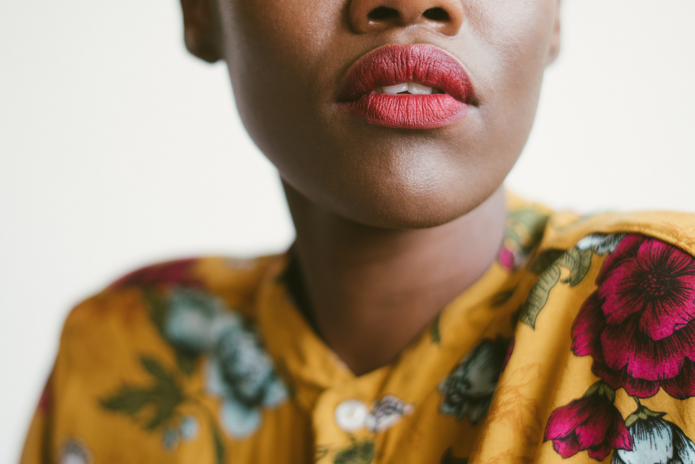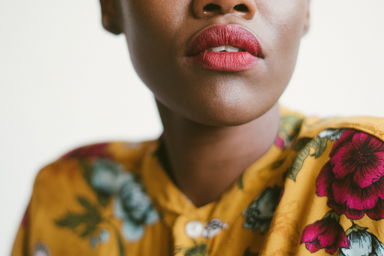I adore the energy us ‘skin-apologists’ exert, when we bashfully apologise for the unkempt but emphasis on temporarily, broken-out state of our skin. As if our skin is the embodiment of the messy bedroom we weren’t expecting to show to the new partner or friend, insisting that ‘it doesn’t always look this bad’. From the chairdrobe, that’s flowing into the floordrobe, to the impermanent half a dozen glasses and mugs scattered upon every available surface. If they stick around long enough they’ll soon realise that the pristine room you claimed to be the real norm occurs maybe once a month and lasts perhaps a day to a week at most. Only you and those you feel most comfortable with know, realistically your room is rarely tidy. Although the semi-messy room may not be the bedroom of my dreams, the small heap of clothes and seemingly chaotic stack of books on my chair do not bother me from day-to-day. It is only when an alien enters my space that I feel this obligatory need to explain the reason why I allow myself to live this way. The fear of someone assuming I’m dirty, lacking in selfrespect or simply complacent pushes me to pretend as if I’m aware of this need to better this part of my life. Yet, I’m content living this way.
The ‘skin-positivity’ movement rocketed ever since Em Ford’s ‘You Look Disgusting’ video in 2015. Whats more, new terms such as ‘maskne’ (referring to the spots caused by wearing masks) have arisen during the chaos of 2020. With it, more and more ‘skin-positive’ influencers are growing due to this recent desire to bare all and love whatever state your skin is in. So why am I still embarrassed about my acne? Like many others, lockdown abruptly threw me into an environment where I could no longer ignore certain aspects of myself I wasn’t keen on, including my skin. After being forced to see my bare face everyday without any distractions for three months, I started to accept my ‘imperfect skin’. My skin which is decorated in vibrant blush coloured bumps and scarring on my forehead and cheeks. I am genuinely content being this way. Yes, my skincare routine includes anti-blemish products (such as niacinamide and mild chemical exfoliants) but I’m no longer putting dangerous amounts of salicylic acid on sensitive acne. This resulted in me burning my skin, just to appear ‘clean’ and ‘pretty’ to others. I’ve come a long way from that, yet still I noticed myself apologising to my new flatmates a couple of days ago due to the state of my bare skin. My skin is the clearest it’s been for three years and I still felt the need to point out certain blemishes and explain myself.
We are all aware of filters and photoshop and to not trust images we see online. Yet, these poreless, textureless images are still inescapable and although we know these aren’t always ‘real’, they’re still seen as the unreachable but desirable epitome of beauty. I recently stumbled upon an Instagram account that shows ‘real’ photographs of female celebrities, revealing textured and blemished skin compared to a filtered version of the same woman. Although the intention behind this account was to debunk this notion of ‘perfection’ and empower ‘real people’ with ‘real skin’, I still felt uncomfortable at the implicit shaming of these women. Certain skin conditions were highlighted using zoomed in shots of Maddison Beer’s acne and Kendall Jenner’s enlarged pores. As I stated before, I appreciate and even encourage the normalisation of ‘real skin’. However, the picking apart of certain celebrities’ faces and posts dedicated to ‘exposing’ another women’s so-called imperfections make me believe the original message has been somewhat lost.
Perhaps the solution is not just the awareness of skin altering programmes and filters but is in creating a more truthful and skin-positive environment, starting with our social media. Even following the #skinpositivity hashtag on Instagram has allowed me to find so many amazing creators and influencers, who don’t just fill social media with bare and unfiltered pictures of their skin. These influencers instead promote the true message behind skin-positivity, which is refusing to define your self-worth by the state of your skin. My feed is now peppered with inspiring influencers sharing their own skin journeys and skin positive affirmations which gives me the reassurance that I am not alone on this skin confidence journey.
‘Your skin, your choice’ is another message I want to make very clear in this. Whether it is acne or rosacea, dermatitis or eczema, it doesn’t make you any less beautiful or worthy. Whether you want to put foundation on, invest in acne treatments, drink the beer you know will break you out or just bare all to the world, that is entirely your choice. You have nothing to apologise for. We are all on the same skin-positive journey and it starts with being kinder to yourself and your skin.
Here are some Instagram accounts to look at:
Or try searching #skinpositivity
Words By: Kiera Moore
Edited By: Olivia Snelson


